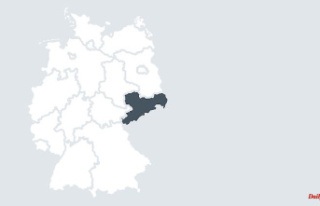This December could be the coldest in many years. Especially from the middle of the month, a mixture of polar cold air and thick snow cover can ensure that temperatures slide deep into the minus zone. It will already be frosty next weekend.
Although the calendar winter has not yet begun, cold and snow have made their way into Germany. Current forecasts show that it will be much colder. Nighttime lows could drop to -20 degrees.
What is relatively clear is that temperatures will become icier by the weekend. After that it gets particularly exciting. "Some of the weather computers see widespread snow in Germany from the weekend and in the middle of the month. Some with larger amounts of snow of 10 to 20 centimeters, even in the lowlands," says weather expert Björn Alexander.
The explosive thing about it: With a blanket of snow, temperatures can become extremely cold at night. "Cold polar air and snow in combination - an ice-cold mixture that can cause lows of -10 to -20 degrees under a clear sky."
The weather conditions allow us to get ice-cold air from the Arctic. "The reason for the ice-cold course is the polar vortex. It protects us in Germany - if it is intact and stable - from the arctic cold air masses. At the moment, however, it has broken down into two cold centers. And that opens the door to Europe for the arctic air," says Alexander.
The last two Decembers also started relatively wintry. But according to the current status, December 2022 will add a portion of cold and snow. It's been a long time since there was a comparably wintry December (in the first half of the month): You have to look back ten years, to December 2012.
At that time, a lot of cold air flowed to us, in Bautzen on December 8th -22.4 degrees were measured. A dense blanket of snow had formed, especially at higher altitudes, in Oberstdorf there was up to 82 centimeters of snow. But around the middle of the month, storm depression Nicki pushed the cold out of the way, and at Christmas we even got quite mild air. In the end, December 2012 was about 0.7 degrees too warm (compared to the December months 1961 to 1990).
December 2010, on the other hand, was clearly too cold: It was the coldest December since 1969 with up to -24 degrees (measured on December 26, 2010 in Bad Königshofen in Lower Franconia). Compared to the long-term average, December 2010 was about 4.3 degrees too cold.
Cold and snow will continue for the next few days. However, we cannot derive any reliable statements about the Christmas weather from this. The example from 2012 shows that a wintry start to December does not necessarily mean snow at Christmas.












